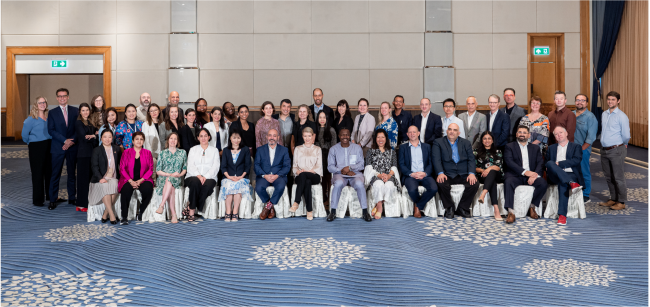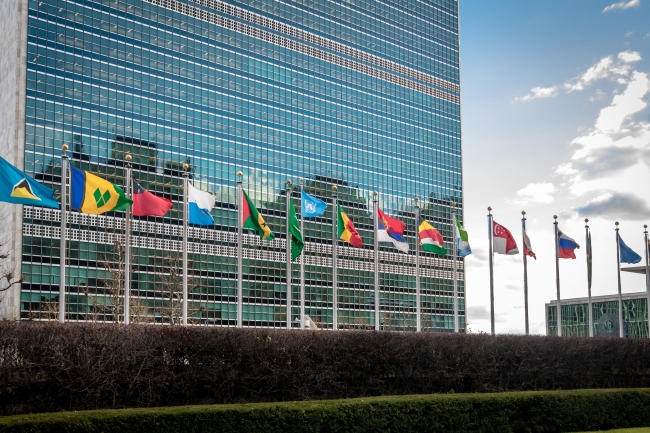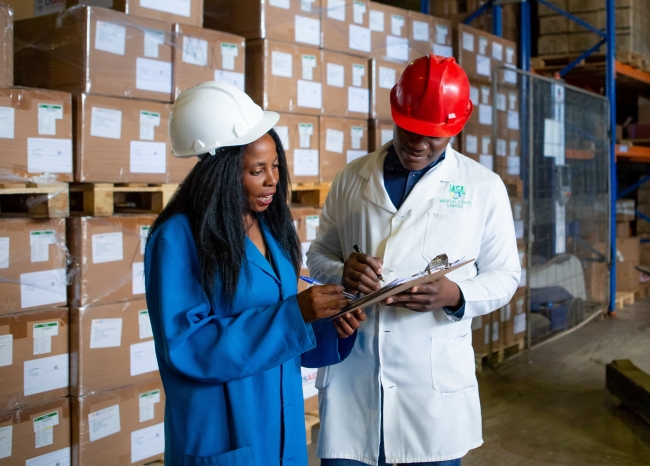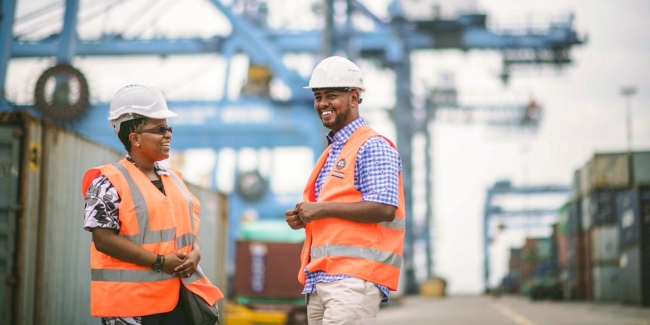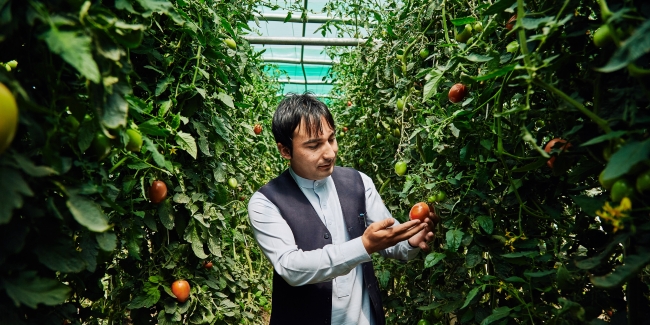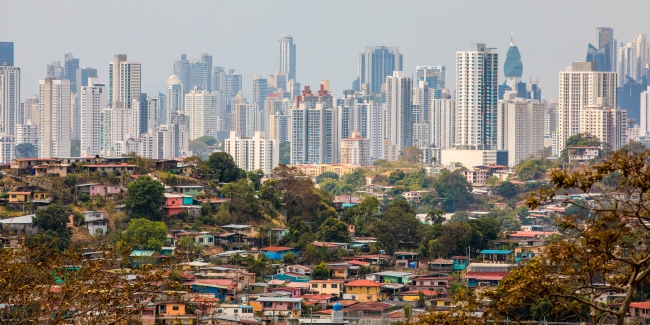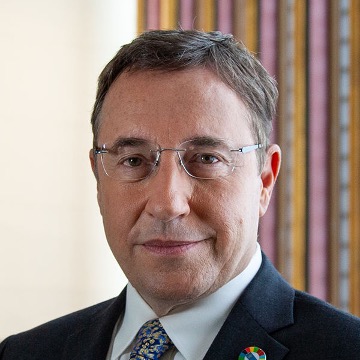Second Regular Session of the Executive Board 2024
27 AUGUST, 2024

As prepared for delivery
A World of Possibilities
Mr. President, members of the Executive Board, colleagues and friends,
I am honoured to join you for the 2024 second regular session of the UNDP/UNFPA/UNOPS Executive Board.
We gather on the eve of the Summit of the Future, which aims to reinvigorate global cooperation and chart a course to address humanity's most pressing challenges—proliferating conflicts, accelerating climate change, growing inequalities and deepening polarization.
With only 17 percent of assessable Sustainable Development Goal (SDG) targets on track for 2030, UNDP’s 2024 Human Development Report highlights a concerning statistic: Two out of three people feel voiceless in their political systems. Risks of reversing SDG achievements are also growing, with alarming projections of negative impacts on poverty and inequality in low- and middle-income countries due to high levels of debt and weak development financing. In this context, the SDG financing gap has grown to as much as $4 trillion annually for developing countries, an increase of 56 percent since 2020.
Against this backdrop, it's easy to believe that our trajectory is fixed towards decline. Yet despite these daunting challenges, UNDP's recently launched Signals Spotlight offers a perspective of hope. It reminds us that our future is not predetermined—we live in a world of possibilities. The report spotlights emerging opportunities for intergenerational justice, responsible technological advancement and innovative forms of social connection that bridge generational divides. We are seeing governments and citizens adopting longer-term perspectives, protecting the rights of nature and future generations, and exploring alternative economic models. According to UNDP’s Peoples’ Climate Vote 2024, four out of five people globally want their governments to take stronger action to tackle the climate crisis.
There is also cause for some optimism in the financial sector. More countries are implementing targeted taxes, investing in impact-driven enterprises, and leveraging capital markets with green, sustainability-linked, and catastrophe bonds. In July, the Group of 20 signalled its commitment to tax transparency and to fostering dialogue on fair taxation, including of ultra-high-net-worth individuals.
Excellencies, this year's UN Financing for Sustainable Development Report is aptly entitled At a Crossroads. Together, we can choose a pathway that unlocks the urgent surge in investment required to achieve the SDGs. Our collective success in scaling up the required financing for development cannot be separated from our collective commitment to investing in development through cooperation. History shows us that financing development through cooperation and strong national ownership has helped not only to change lives —fewer people living in poverty, more people with access to services and higher average levels of income – but also to deliver vital global public goods such as eradicating diseases and phasing out of ozone depleting substances.
Ahead of us lie important opportunities for multilateralism and development cooperation to mobilize political will, and address the fundamental misalignment between financing and the economic, social, and environmental dimensions of sustainable development. They include the conferences of the parties on the three Rio Conventions, the third UN Conference on Landlocked Developing Countries and the fourth International Conference on Financing for Development. The 2024 Quadrennial Comprehensive Policy Review will also set the direction for UN operational activities for development and new strategic plans in support of the SDGs.
The key to transforming a world of possibilities into action lies in making development our shared agenda in which all countries co-invest.
UNDP is your strategic investment in our shared future
As a key institution in the global development cooperation architecture, UNDP serves as one of the premier platforms to effectively leverage financing for development to deliver impact. In line with this session’s focus on financing the results of our Strategic Plan 2022-2025, my remarks today will highlight the development return from investing in the core of UNDP. In summary, with investments from our contributors, including donors and programme country governments, and our partnerships with UN Member States, UN entities, civil society and the private sector, UNDP has become one of the top five development partners identified by leaders today.
Allow me to begin by reflecting on the Annual Session of the Executive Board in June, where I presented the midterm review of UNDP's Strategic Plan 2022-2025. The review affirmed that at the midpoint, UNDP has met or exceeded most development milestones, due to the power of our integrated approach to programming and our capacity to work with a large number of diverse partners. Highlights of our 2023 achievements include: 72 million people gaining access to essential services; 39 million women accessing financial services and non-financial assets; support enabling 439 million registered voters to participate in 36 elections; and 6 million people affected by crises benefitting from socioeconomic inclusion and social cohesion interventions.
The review also highlighted UNDP's evolution to a modern, future-thinking organization that has amplified your investments. With $566 million in core funding in 2023, UNDP delivered $4.8 billion in programme implementation across 170 countries and territories—a multiplier effect of 8.5 times.
In a complex and rapidly changing political and development context, discussions will soon begin on our next Strategic Plan. To prepare for this, I commissioned a review to assess the effectiveness of UNDP's current business model in creating, financing and delivering value. This assessment, combined with findings from recent audits and the ongoing evaluation of our Strategic Plan by UNDP’s Independent Evaluation Office, provides insights into how UNDP advances both national development priorities and global goals.
Over the past decade, UNDP has become a more influential and helpful development partner for leaders in developing countries. According to AidData’s Listening to Leaders Survey of development partners in 147 low- and middle-income countries, across cohorts and over time, UNDP is the only UN organization consistently ranked among the top five development partners by leaders receiving its advice or assistance.
UNDP is achieving this with a significantly smaller budget envelop. The survey found that amid 20 benchmark bilateral and multilateral development partners, UNDP’s contributions in dollar terms represent less than 1 percent of total financing for each of the 17 SDGs. Nevertheless, UNDP achieved double-digit growth in its perceived influence and helpfulness between 2014 and 2024.
We have become a more influential and helpful development partner with a relatively small share of resources by strategicallyinvesting limited flexible resources in areas that generate high development returns:
- Future-looking expertise and capabilities to support developing countries and the multilateral system in tackling current and future development challenges, and shaping the global development agenda: By blending global technical expertise with deep local knowledge, UNDP with its partners, co-creates integrated and scalable development solutions that have mobilized additional resources and supported governments to bring about systems-level change. In 2023 every $1 in core resources spent on programmes leveraged $11 in other programmatic resources.
- Global presence across 170 countries and territories, including 58 fragile countries, to deliver development interventions uniquely crafted to match country priorities, and ensure that UNDP is on the ground before, during and after a crisis: The UN Board of Auditors in its 2024 report determined that UNDP’s global presence—the largest field presence of the United Nations—is a productive asset for development that should be protected and enhanced. The board’s recommendation reinforces an external evaluation carried out by the Multilateral Organisations Performance Assessment Network (MOPAN) in November 2020, which identified UNDP's footprint as its second most important advantage, after its relationship with governments.
- Modern operations and an inclusive organizational culture to enhance UNDP’s efficiency, accountability, transparency, risk management and working environment: In 2023, 92 cents of every dollar spent went directly to programmes and services, exceeding our 91 cent target. We maintain the highest standards of transparency and oversight, evidenced by 18 consecutive years of clean audits and our "very good" ranking—the highest category—on the 2024 Aid Transparency Index. Our People for 2030 Strategy has received external recognition for its impact, including two awards from the Chartered Institute of Personnel and Development for the “Best Learning and Development Initiative for a Public Sector Institution.” Implementation of our Diversity, Equity and Inclusion Strategy; Gender Parity Strategy 2023-2025 and Anti-Racism Programming Action Plan 2024-2025 is well underway.
UNDP continues to serve as a committed partner and remains the operational backbone of the UN development system. According to the UN Board of Auditors, UNDP is recognized by UN resident coordinators, donors and other agencies as a key member of UN county teams because of its regional and local presence, historical roots and quality relationships with host governments.
In 2023, with over 80 UN entities as clients, UNDP administered a $2 billion annual payroll, and processed over $1 billion worth of other financial transactions in 113 currencies. Over $12.6 million was related to services provided to the resident coordinator system. UNDP remained the highest cost-share contributor to the resident coordinator system in 2023, channelling $19 million in contributions and the coordination levy. We also offered common premises in at least 121 countries.
Core contributions to UNDP remain critical for the entities we host on behalf of the UN system to deliver on their strategic frameworks. In line with Executive Board guidance for the use of core funding, in 2024 UNDP provided:
- $8.86 million to UN Volunteers (UNV), which mobilized over 11,000 volunteers for 54 UN entities in 2024, and is increasing volunteer opportunities for individuals with disabilities and from underrepresented nationalities.
- $5.97 million to the UN Office for South-South Cooperation (UNOSSC), which cumulatively, over its current Strategic Framework, is delivering over $140 million across more than 100 countries; UNDP is implementing half its projects.
- $2.91 million to the UN Capital Development Fund (UNCDF), which in 2024 has committed to investing over $45 million in blended financing solutions across more than 35 countries in Asia, Africa and the Pacific.
The Multi-Partner Trust Fund Office, hosted by UNDP, continues to provide pooled funding services to the UN system 20 years after its establishment. Following another record year in 2023, when it disbursed over $1 billion, the office has received $479 million in deposits in 2024 and provided funding through the UN system to 92 programme countries. UNDP is the top participating UN organization, implementing over $214 million for joint actions in 2023.
Excellencies, with these strategic investments from our core resources and only a 1 percent share of total financing for each SDG, leaders today consider UNDP increasingly helpful and influential, and a trusted partner in the UN development system. Imagine the development impact we could achieve together by doubling our strategic investments from core resources.
UNDP is creating value
Today, countries have a range of development partners to work with, from new multilateral agencies to experts from the private sector. Within this context, UNDP is committed to understanding where we bring the greatest value, how we continue to remain relevant and how we can maximize the development return from your investment.
Allow me to highlight our performance in key areas where leaders have indicated UNDP brings the most value.
Catalysing SDG financing
UNDP's journey as a catalyst for sustainable finance illustrates our commitment to evolving with global needs. In 2019, recognizing the growing imperative to boost SDG financing, we made a strategic $10.3 million investment from flexible resources to establish the Sustainable Finance Hub. Since then, it has catalysed close to $30 billion in new development finance and aligned $200 billion of investment with the SDGs. More than just numbers, this initiative has transformed perceptions. Leader confidence in UNDP's ability to assist with financial policy reforms surged from 68 percent in 2014 to 90 percent in 2020.
One key instrument has been our support to country-led integrated national financing frameworks (INFFs). Working with partners, including the UN Department for Economic and Social Affairs, the UN Children’s Fund and the Organisation for Economic Co-operation and Development (OECD), and with funding from the Joint SDG Fund, UNDP has supported over 85 countries, including 13 fragile States,[18] to adopt INFFs, which have leveraged $16 billion in new finance and aligned an additional $32 billion with the SDGs.
Fifty countries are now reforming public and private financing policies and driving innovations in domestic financial architectures based on their INFFs. For example, Mongolia’s financing strategy has resulted in an SDG performance audit, a sustainable finance taxonomy, and, in the 2023 budget, the alignment of $600 million in public expenditure with the SDGs.
Another important instrument is the Tax Inspectors Without Boarders Initiative, a partnership between UNDP and the OECD. It has supported developing countries to generate an additional $2.3 billion in tax revenues, a $127 return for every contribution dollar invested.
Our commitment to scaling up SDG financing extends to strategic private sector partnerships. In July, we launched a collaboration with the timbuktoo Africa Innovation Foundation, a state-of-the-art fintech hub in Lagos, Nigeria. This venture brings together UNDP, African governments and private sector players to catalyse innovation and investment in the pan-African fintech ecosystem. It is building university innovation pods in 13 African cities to offer young innovators space to transform their ideas into viable products and profitable ventures.
Simultaneously, UNDP is addressing global inequalities through gender-responsive financing. Our EQUANOMICS initiative is assisting 23 countries in implementing gender-responsive fiscal policy reforms at both the local and state levels, and supporting finance ministries and tax authorities to maintain such reforms.
Scaling up climate action
Excellencies, while global emissions need to fall 9 percent every year until 2030 to keep the 1.5°C limit alive, last year, they rose by 1 percent. UNDP’s Climate Promise, initiated through a $12.5 million core funding investment in 2019, has attracted additional funding that enabled UNDP to support over 128 countries with revisions and implementation of their national determined contributions (NDCs). The Climate Promise is now leading a coordinated UN system-wide effort to assist developing countries in the 2025 NDC revision process.
UNDP also continues to assist countries to deliver on their NDCs by leveraging its $2.2 billion climate portfolio. Ghana exemplifies progress, emerging as a leader in the voluntary carbon market and unlocking $850 million in investments that could create 7,000 green jobs by 2030. Ecuador has preserved almost 800,000 acres of rainforest and made climate-smart livestock farming a model for the Amazon.
We remain the partner of choice for developing countries in accessing multilateral environment and climate funds. Since 2022, UNDP has supported countries to mobilize approximately $900 million from the Global Environment Facility Trust Fund (GEF) and $60 million from the Green Climate Fund (GCF). The UNDP-GEF Small Grants Programme funded over 2,200 projects in 127 countries with almost $160 million. More than half this funding comprised co-financing from communities, governments and donors. Our focus on the most vulnerable is evident: Nearly two thirds of grants benefited 40 least developed countries and 37 small island developing States.
We are using this experience to support developing countries to directly access the multilateral climate funds through pipeline development, capacity-building and accreditation. To date, UNDP has supported 20 national entities, 5 of which achieved accreditation and submitted proposals to the GCF.
UNDP is also pioneering innovative financial approaches to address climate risks. In Ghana, our Insurance & Risk Finance Facility[20] partnered with global insurance leaders Swiss Re and Allianz and the Ministry of Finance and National Disaster Management Organization to develop a parametric flood insurance solution for emergency disaster relief expected to protect over 5 million people.
At the community level, UNDP and UNCDF have collaborated with the UN University to develop digital insurance products that provide rapid payouts following natural disasters. Almost 20,000 households across Fiji, Kiribati, Samoa, Solomon Islands, Tonga and Vanuatu have registered for these innovative solutions.
Our approach goes beyond reactive measures. As a risk-informed, anticipatory organization, UNDP is proactively addressing likely future challenges. For example, in collaboration with the World Health Organization and the GCF, we have developed the Climate and Health Co-investment Facility. It aims to mobilize over $120 million to ramp up support for mitigating and responding to the impacts of climate change on health in 14 countries in Africa, Asia and Eastern Europe.
Advancing development in crisis
Core resources underpin UNDP’s ability to respond swiftly to crises while simultaneously catalysing much needed larger investments and advancing development goals. Here are a few examples of how core resources have enabled UNDP to immediately respond, mobilize additional resources and ‘stay and deliver’ in some of the most devastating emergencies of our time.
- In the wake of the war in Sudan, UNDP immediately allocated $1.25 million from core resources to address urgent humanitarian needs and serve as seed capital. This effectively leveraged approximately $5 million from non-traditional donors, which enabled UNDP to accelerate its support to emergency livelihood interventions and energy, water and health-care services.
- In Ukraine, an initial investment of $3 million from core resources was critical to the rapid scale up of UNDP’s capacities to increase delivery to $199.9 million in 2023, supporting life-saving efforts in energy, debris management and mine clearance. Notably, UNDP’s energy programme focuses on the urgent provision of critical infrastructure and the decentralization of energy generation. Over $200 million has been budgeted in 2024 to provide this integrated development support.
- In Myanmar, where 42 million people now live close to or below a subsistence level and the middle class has shrunk by 50 percent in just three years, UNDP’s crisis response reached over 2 million vulnerable people through a community-first approach, including cash-for-work programmes and initiatives promoting restorative agriculture.
- UNDP's Programme of Assistance to the Palestinian People continues to undertake emergency interventions in Gaza in response to the devastation of the war. Notably, UNDP, as the UN lead on solid waste management, has conducted an assessment with UN partners to prioritize critical interventions to respond to the collapse of Gaza’s solid waste management system. At least $62 million over the next 18 months is required to prevent a catastrophic public health crisis.
Core resources provide UNDP’s first line of response to countries in the aftermath of natural disasters and catalyse investment in building resilience.
- Following the devastating earthquake in Türkiye, with flexible funding of $2 million, UNDP’s small-scale ‘proof of concept’ pilot projects mobilized $46 million from other contributors.
- In Colombia, core contributions helped consolidate existing partnerships and foster new alliances to mitigate the impacts of disastrous floods linked to El Niño, resulting in the mobilization of $2.4 million.
Championing gender-responsive interventions in crisis-affected contexts, where over 600 million women and girls live, remains fundamental to all UNDP responses. In 2023, UNDP helped close to 5 million women in crisis settings access jobs and livelihoods, demonstrating our commitment to advancing gender equality even in the most challenging environments.
We can and must do more.
Increasing momentum: financing results in UNDP's current and future strategic plans
Excellencies, UNDP has demonstrated a strong track record of achieving cost-effective results. We realized all entity-specific commitments in the Funding Compact in 2023, and as a result, I am proud that our funding and programme country partners continue to place their trust in us. Annual contributions increased by 1 per cent in 2023 to $5 billion due to a 2 percent increase in other resources. This included a 7 percent rise in contributions from programme country governments and an 18 percent boost in contributions from the international financial institutions.
Yet UNDP core resources declined by 4 percent in 2023. A 50 percent share of total contributions in the 1990s has dwindled to just 11 percent today, far below the 30 percent target set in the Funding Compact. The proportion of multi-year agreements has also fallen, from 33 percent in 2022 to 31 percent in 2023.
The continued decline in core contributions strikes at the heart of our ability to serve. Core funding allows UNDP to maintain our global presence, respond swiftly to crises, ensure oversight and transparency, and innovate in an ever-changing world. The UN Board of Auditors warned that if financial pressures continue, UNDP’s identity as a development institution may be at risk.
We are taking steps to address financial pressures, and we will do more. We will continue to deepen and expand our engagement with longstanding core contributors and new partners, showcase the impact and visibility of flexible funding, and increase our thematic funds.
But we need your support. In July, Member States endorsed the new, more ambitious Funding Compact, which creates a strong foundation for a more strategic, responsive UN development system that can achieve more with high-quality, predictable core resources. UNDP appreciates increased core contributions in 2023 (listed by volume of total contribution) from the Governments of Germany, Japan, Norway, France, Republic of Korea, Ireland, Spain, Austria, Liechtenstein and Andorra. We also welcome the commitment to multi-year pledges for core contributions made by the Governments of Australia, Belgium, Denmark, Luxembourg, the Netherlands, New Zealand, Qatar, Sweden, Switzerland and Türkiye. UNDP’s results are not possible without continued support from all funding partners.
Excellencies, next year marks UNDP's sixtieth anniversary, the final year of our current Strategic Plan and the opening of a new strategic chapter. Let us use these opportunities and upcoming milestones for multilateralism to renew our commitments to financing development through cooperation and through UNDP. With your support, together we can continue to maximize the development return from your investments, changing lives today and, through our actions, transforming the many possibilities for tomorrow.
I began my remarks by referring to the Summit of the Future and UNDP’s latest Signals Report. Allow me to close by saying that leaving a legacy of choice, not a burden of debt, is the only way to ensure fair shares and opportunities for all, now and in the future.
Your support for UNDP is an investment in a fair and sustainable future.

